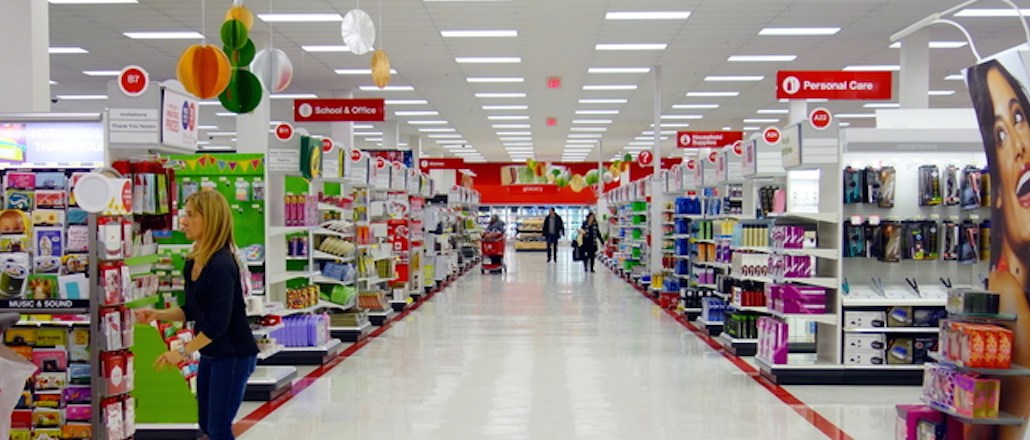
Techstars’ retail startup accelerator is now accepting applications, and it has teamed up with Target to help get young companies off the ground.
In the past, Techstars has worked with companies like Barclays and Disney in the tech and entertainment sectors, but this is first time it has partnered with a retailer to drive a select group of the industry’s startup community forward. Target, on its end, has in the past sponsored the Silicon Valley retail accelerator Plug and Play Retail, hosted a handful of retail startups in its own Target India accelerator program, and invested in one shopping-related startup, Cosmic Cart.
The summer accelerator will be based in Minneapolis and will be led on Target’s side by its chief innovation and strategy officer Casey Carl, as well as three newly hired entrepreneurs-in-training. One of them, West Stringfellow, who has developed programs for PayPal, Amazon and Rosetta Stone, joined Target eight months ago to get the accelerator partnership with Techstars up and running.
“At Target, what we saw was that there’s an opportunity to learn from the folks who are doing innovation small and fast. Those are the startups,” Stringfellow said. “There’s an obvious synergy between Target and how it can help these companies.”
The Techstars-Target retail accelerator is accepting applications until March and will select 10 companies to admit to its three-month summer program in Minneapolis. A demo day will be held in September. There are no promises that Target will invest in or acquire the startups, and no restrictions on the companies to work with other retailers. Each team will receive up to $120,000 in funding, with 6 to 10 percent equity taken by Techstars.
Target has historically steered clear of buying a stake in startup companies — in September 2014, following the investment in Cosmic Cart, Target evp Jeff Jones hinted that it was something the retailer was considering doing more of but, at the time, hadn’t figured out what kind of company it would be looking for when deciding to invest. While none of the 10 startups are guaranteed investment or acquisition by Target, spending a summer working out of its innovation lab is bringing them one degree closer.
Stringfellow said that to start, the companies are going broad when looking at what companies should be admitted into the accelerator. New product lines, in-store tech solutions, mobile retail platforms — none of it is off the table. The application for the program implies that the only requirement is that the company is solving some problem for customers.
“We’re looking for companies that can benefit from having access,” he said. “Target’s an expert in many things, and likewise they want to learn from the startups and things that they’re doing. We purposefully are being broad because we don’t know what we’re looking for.”
Other big brands that have launched startup accelerators — Pepsi led the way in 2010 when it launched PepsiCo 10, a digital startup incubator — to get closer to burgeoning technology early in the game. Walmart and Walgreens, among other retailers, have opened innovation labs specifically designed for scoping out startups doing work in their sector. National Retail Federation svp and Shop.org executive director Vicki Cantrell said that the labs are often located in different cities, possibly even regions, than the company’s headquarters, so the labs have room from corporate, to “breathe and innovate.” Walmart’s @WalmartLabs is located in Silicon Valley, whereas Walmart is headquartered in Arkansas.
But Stringfellow asserts that, despite the seemingly held belief that there’s “magic in the soil” in Silicon Valley, Techstars and Target are out to help foster Minneapolis’s startup scene, which Stringfellow said is growing.
Whether or not any of these retail startups end up being the first Target invests in, Stringfellow believes the program is solving a problem within the startup community.
“There’s a gap in accelerators,” he said. “There’s not enough retail-focused accelerators out there.”
Image via ValeStock/Shutterstock
More in Marketing

WTF are tokens?
When someone sends a prompt or receives a response, the system breaks language into small segments. These fragments are tokens.

AI is changing how retailers select tech partners
The quick rise of artificial intelligence-powered tools has reshaped retailers’ process of selecting technology partners for anything from marketing to supply chain to merchandising.

YouTube’s upmarket TV push still runs on mid-funnel DNA
YouTube is balancing wanting to be premium TV, the short-form powerhouse and a creator economy engine all at once.





